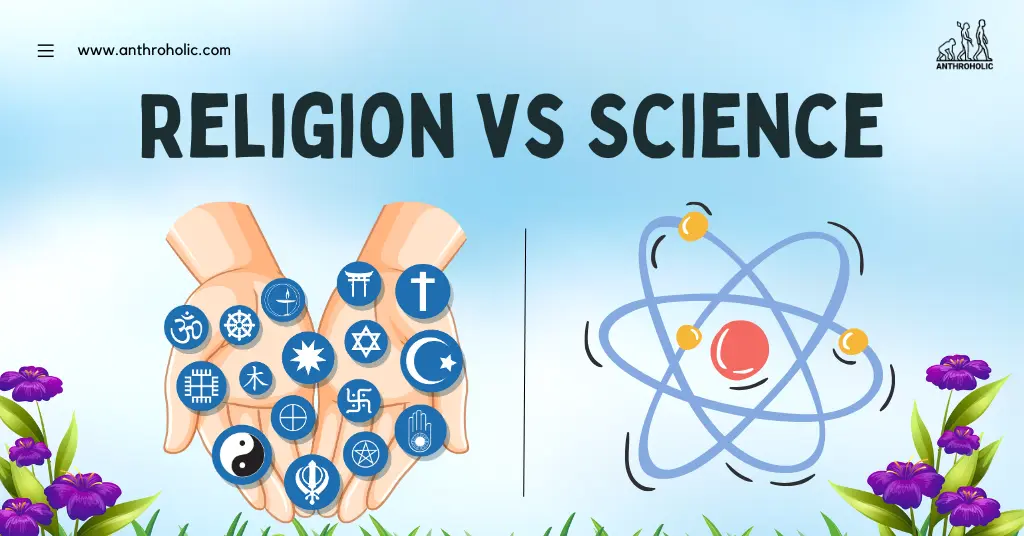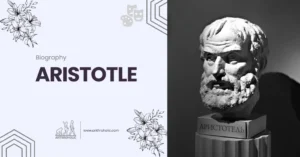AI Answer Evaluation Platform Live Now. Try Free Answer Evaluation Now
Religion vs Science
One of the most fascinating aspects of the human experience is the way we seek to understand our world. This quest has primarily taken two distinct paths: science and religion. While these domains may seem fundamentally divergent, each seeks to answer profound existential questions about life, the universe, and our place within it.

Similarities Between Science and Religion
Despite the commonly held belief that science and religion are incompatible, there exist several significant similarities between the two.
Pursuit of Truth
Both science and religion are propelled by the pursuit of truth. Religion explores spiritual truths, providing a moral and ethical framework within which adherents find purpose and meaning [1]. Similarly, science seeks empirical truths about the natural world, endeavoring to uncover the workings of the universe through systematic observation and experimentation [2].
Communities and Traditions
Religions have communities of believers and established traditions, often based on sacred texts and teachings [3]. Similarly, scientific communities have established traditions of peer review, sharing results and hypotheses, with ‘sacred texts’ in the form of foundational theories and principles [4].
Addressing Life’s Big Questions
Religion and science both attempt to answer life’s big questions – “Where do we come from?” “What is our purpose?” “What happens after death?” – albeit in different ways. While religion typically relies on divine revelation or spiritual introspection, science utilizes empirical evidence and logical reasoning.
Differences Between Science and Religion
While there are similarities, it is impossible to ignore the fundamental differences between science and religion.
The Basis of Belief
The first difference lies in the basis of belief. Science relies on empirical evidence, reproducibility, and falsifiability. In contrast, religion relies on faith, personal experience, and revelation, often in the absence of empirical evidence.
Changing vs Unchanging
Science is fundamentally an evolving field. As new evidence emerges, old theories can be revised or even discarded. On the other hand, religious beliefs are often considered unchanging and eternal, with scriptures and holy texts remaining the same over centuries.
Conflict Resolution
In science, disagreements are usually resolved through more research and evidence collection. In religion, disagreements often lead to the formation of new sects or denominations, as resolution is difficult due to the subjective nature of belief.
Table 1: Summary of Differences
| Science | Religion |
|---|---|
| Empirical evidence, reproducibility, and falsifiability | Faith, personal experience, revelation |
| Evolving, with theories revised or discarded based on new evidence | Often considered unchanging, with eternal scriptures and texts |
| Conflicts resolved through research and evidence | Conflicts can lead to new sects, resolution subjective |
Striking a Balance
It is essential to appreciate the distinctive contributions of science and religion. While science provides a powerful tool for understanding the physical world, religion provides a framework for moral, ethical, and spiritual understanding. The intersection and dialogue between science and religion can enrich our perspective and approach to life’s profound questions.
Conclusion
In the anthropology of knowledge, science and religion are central pillars around which societies and cultures have been built. While they are different in their methodologies and often in their conclusions, they share a common goal: the quest for understanding. By acknowledging both their similarities and differences, we can engage in more productive dialogues and foster a more integrated understanding of our world.
References
[1] Smith, H. (1991). The World’s Religions: Our Great Wisdom Traditions. San Francisco: HarperCollins.
[2] Popper, K. (2002). The Logic of Scientific Discovery. London: Routledge.
[3] Geertz, C. (1973). The Interpretation of Cultures. New York: Basic Books.
[4] Kuhn, T.S. (1996). The Structure of Scientific Revolutions. Chicago: University of Chicago Press.




